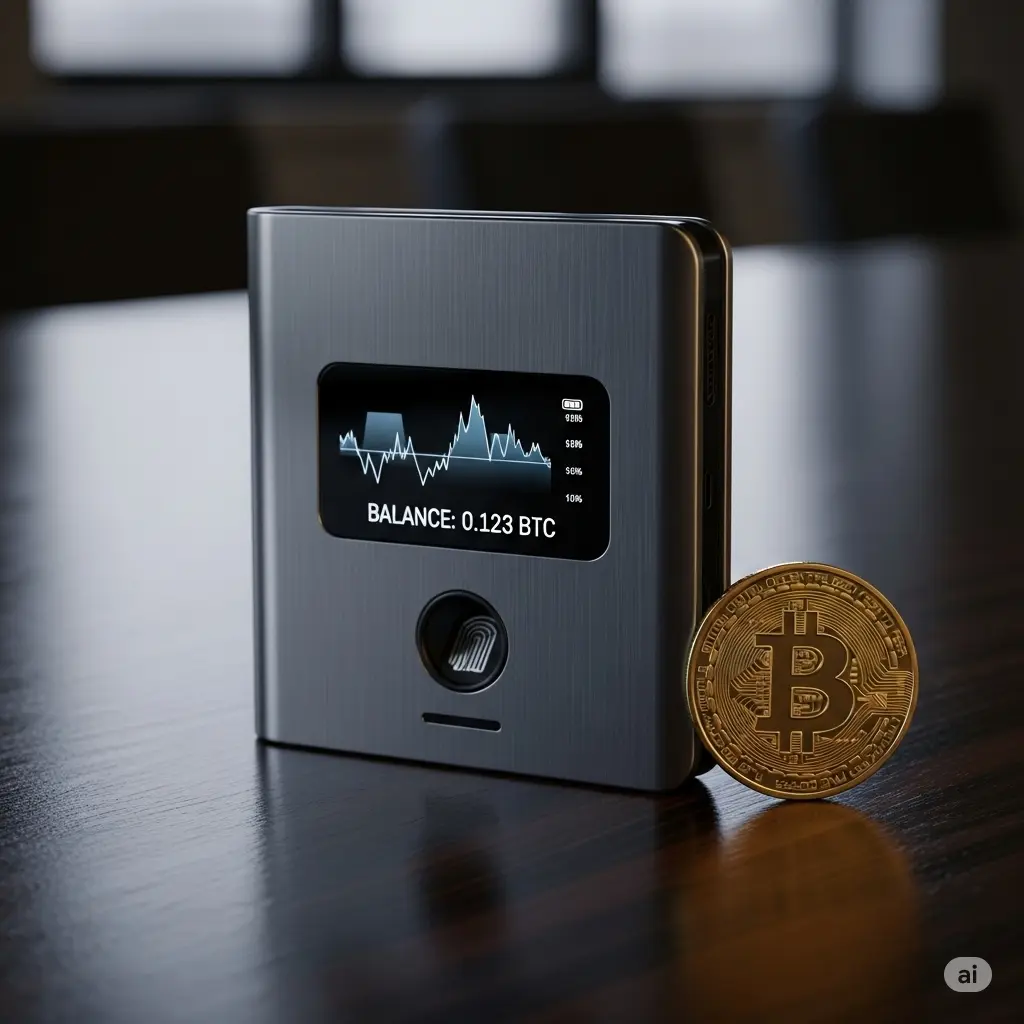What Is a Secure Crypto Wallet?
A secure crypto wallet is a digital tool that allows users to store, send, and receive cryptocurrencies like Bitcoin, Ethereum, and thousands of others. Unlike traditional wallets, crypto wallets don’t store currency in the physical sense; instead, they hold your private keys — secret codes that grant access to your digital assets on the blockchain.
Why a Secure Crypto Wallet Is Crucial in 2025
In the ever-evolving landscape of cryptocurrency, security remains the most critical concern for investors and users alike. With billions of dollars moving daily through blockchain networks and DeFi platforms, protecting your digital assets is no longer optional — it’s essential. That’s where the Secure Crypto Wallet steps in: a robust, exclusive solution designed specifically for maximum safety today.
As the crypto market expands into 2025, threats like hacking, phishing scams, and software vulnerabilities have become increasingly sophisticated. This has pushed innovators to develop wallets that not only safeguard assets but also enhance usability and accessibility. Whether you’re a beginner or an experienced investor, understanding what makes a crypto wallet truly secure will empower you to protect your investments in this exciting digital age.
This comprehensive guide, brought to you by Global Crypto Sports, dives deep into the world of crypto wallets, their types, security features, and how to choose the best crypto wallet 2025 to suit your needs.

Key Crypto Terms Explained
- Blockchain: A decentralized ledger where all cryptocurrency transactions are recorded. Think of it as an unchangeable digital ledger maintained by thousands of computers worldwide.
- DeFi (Decentralized Finance): Financial services built on blockchain technology that operate without traditional banks.
- Web3: The next evolution of the internet, emphasizing decentralization, blockchain, and token-based economics.
- Private Key: A secret alphanumeric password that controls access to your crypto holdings.
- Public Key: A cryptographic code that allows users to receive cryptocurrencies.
Types of Crypto Wallets
Crypto wallets come in several forms, each with its own security features and use cases.
1. Cold Wallets
- Definition: Offline wallets that are not connected to the internet.
- Examples: Hardware wallets, paper wallets.
- Pros: Highly secure from online hacks, ideal for long-term storage.
- Cons: Less convenient for frequent transactions.
2. Hot Wallets
- Definition: Wallets connected to the internet.
- Examples: Mobile wallets, desktop wallets, web wallets.
- Pros: Easy access, quick transactions.
- Cons: Vulnerable to hacking and phishing attacks.
3. Hardware Wallets
- A subset of cold wallets, hardware wallets are physical devices that securely store your private keys offline.
- Brands like Ledger and Trezor are popular hardware wallets.
- They offer a balance between security and usability.
4. Mobile Wallets
- Wallet apps on smartphones.
- Convenient for daily use and smaller transactions.
- Security varies by app, so choosing one with strong encryption is critical.
5. Decentralized Wallets
- Wallets that do not rely on a central authority.
- Often integrated with DeFi platforms and Web3 applications.
- Enhance privacy and control over your assets.
What Makes a Crypto Wallet Secure?
When choosing a secure crypto wallet, look for these key security features:
1. Private Key Control
- You should have exclusive access and control over your private keys.
- Wallets that store your private keys on centralized servers are less secure.
2. Multi-Factor Authentication (MFA)
- Adds an extra layer of protection by requiring additional verification steps.
3. Backup and Recovery Options
- Wallets should offer easy-to-use backup features, such as seed phrases.
- Secure wallet backup practices ensure you can restore access if your device is lost or damaged.
4. Encryption
- All sensitive data should be encrypted to prevent unauthorized access.
5. Open-Source Software
- Transparency in the wallet’s code allows the community to audit and improve security.
6. Regular Updates
- Developers should frequently update the wallet software to patch vulnerabilities.
Real-World Examples of Secure Crypto Wallets
Here are some leading wallets known for security in 2025:
Ledger Nano X (Hardware Wallet)
- Uses secure element chips and Bluetooth connectivity.
- Allows offline key storage.
- Suitable for investors prioritizing security over convenience.
MetaMask (Decentralized Hot Wallet)
- Widely used for interacting with DeFi and Web3.
- Stores private keys encrypted locally.
- Supports multi-chain wallets.
Trust Wallet (Mobile Wallet)
- User-friendly and supports many cryptocurrencies.
- Offers biometric security and backup seed phrases.

Pros and Cons of Different Wallet Types
| Wallet Type | Pros | Cons |
|---|---|---|
| Cold Wallet | Highest security, immune to online attacks | Less convenient for frequent trading |
| Hot Wallet | Easy to use, accessible anytime | More vulnerable to hacking |
| Hardware Wallet | Secure offline storage, portable | Costly, requires physical possession |
| Mobile Wallet | Convenient, supports multiple coins | Depends on phone security |
| Decentralized Wallet | Enhanced privacy and control | Can be complex for beginners |
Why Choose an Exclusive Secure Crypto Wallet Today?
The crypto ecosystem is becoming more mainstream, attracting both retail and institutional investors. This has led to:
- Increasingly sophisticated cyber threats.
- Regulatory scrutiny demanding better security standards.
- The need for wallets that combine ease of use with advanced security features.
An exclusive secure crypto wallet meets these demands by offering state-of-the-art encryption, hardware protection, and user-friendly backup systems.
How to Choose the Best Crypto Wallet 2025
Follow these tips to select the best option for your needs:
1. Assess Your Usage
- Are you a trader needing quick access or a long-term holder?
- Consider hot wallets for active trading, cold wallets for storing large amounts.
2. Prioritize Security Features
- Look for wallets with hardware-backed security, multi-factor authentication, and encrypted backups.
3. Check Compatibility
- Make sure the wallet supports the cryptocurrencies you own.
4. Read User Reviews and Community Feedback
- Trusted opinions can reveal hidden issues or advantages.
5. Consider Backup and Recovery
- Choose wallets offering seed phrases or encrypted backup files.
Tips for Crypto Wallet Security
Here are practical steps to improve your wallet security:
- Never share your private key or seed phrase.
- Use hardware wallets for large holdings.
- Enable multi-factor authentication where possible.
- Keep wallet software up to date.
- Store backup phrases offline in a secure location.
- Avoid using public Wi-Fi when accessing your wallet.
- Beware of phishing links and scams.
FAQ: Your Secure Crypto Wallet Questions Answered
1. What is the difference between a cold wallet and a hot wallet?
A cold wallet is offline and therefore much more secure from hacking, ideal for storing assets long-term. A hot wallet is connected to the internet, allowing quick transactions but is more vulnerable to attacks.
2. How do hardware wallets enhance crypto wallet security?
Hardware wallets store your private keys on a physical device isolated from the internet, protecting your keys from malware and hackers.
3. Can I recover my crypto if I lose my wallet?
Yes, if you have a wallet backup or seed phrase. It is vital to store your backup securely, as losing both your wallet and backup means losing access permanently.
4. Are decentralized wallets safer?
Decentralized wallets give you complete control over your private keys without relying on a third party, increasing privacy and security, but they require you to be responsible for managing backups.
5. What makes a wallet the best crypto wallet 2025?
A combination of robust security features, user-friendly design, multi-currency support, and regular updates defines the best wallets in 2025.
6. How often should I update my crypto wallet?
Always update your wallet software as soon as a new version is available to protect against vulnerabilities.
7. Is it safe to use a mobile wallet?
Yes, if you choose a reputable wallet app with strong encryption and follow best practices like enabling biometric locks and not storing large sums for long periods.
Conclusion: Stay Safe and Secure with the Right Crypto Wallet
The rise of cryptocurrencies in 2025 means greater opportunities — and greater risks. Your best defense is an exclusive secure crypto wallet designed for maximum safety, combining advanced technology and smart user habits.
Whether you choose a cold wallet for ultimate protection or a hot wallet for convenience, always prioritize security features like private key control, encryption, and backup.
Stay informed, invest wisely, and protect your assets by choosing the best crypto wallet 2025 tailored to your needs.